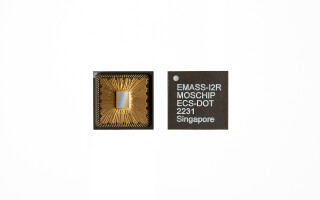The Well Rounded Engineer
February 22, 2023
Blog

Engineering, by its very nature, is a technical pursuit, involving numbers, the translation of science into practical applications, and a lot of tinkering to get things just right. Pursuits such as sports, art, music, writing, and other such “squishy” subjects are fine, but could be considered secondary in nature.
Or so I thought while going through school and early in my career. Despite myself, I consider myself a good writer, largely due to a significant amount of practice, lots of reading, and the occasional editorial nudge. I’ve also developed some presentation ability via podcasting, YouTube, and by forcing myself to speak in front of people when given the opportunity. I now realize that these non-technical skills are very important, perhaps even more so than technical skills in some cases.
If You Write Present Bad, People Respect Less
As a technical journalist on Embedded Computing Design and elsewhere, being able to write well–for an engineer at least–is a given. However, in my decade-plus of working in manufacturing automation, I would often see evidence of poor writing skills from people who were otherwise very intelligent. An informal email is one thing, but if you’re preparing a PowerPoint or writing work instructions, people will likely respect you and the work less if it’s riddled with grammatical errors.
Similarly, as an engineer you may be called upon to make presentations about your work, either formally to a group, or informally in smaller meetings. If you can’t present and defend your technical ideas, they may be pushed to the wayside, potentially burying what would have been excellent work.
Engineering as a Creative Outlet
Paraphrasing, I once had someone tell me that if your machinery looks good, people using it will be more willing to give it a chance. Ultimately, whatever design you put out needs to work well, but people will appreciate a clean and beautiful design, especially if there’s a learning curve involved.
In a different context, if you’re showing things off to people higher up in your company, or presenting a portfolio to a new potential employer, a great looking design can be extremely helpful here as well. Ultimately,if things are both functional and beautiful, you'll be more satisfied with your work..
Inspiration Abounds
(Caption: Refinishing this baritone ukulele wasn’t my best performing video, but leaning to play has provided inspiration for other projects., Image Credit: Jeremy Cook)
Beyond number crunching and CAD skills there is often a lot of creativity involved in finding an elegant solution to engineering challenges. It can be extremely useful to have interests and pursuits outside of the stereotypical engineering paradigm, and to have friends and colleagues with the ability to offer a different perspective.
In my own recent experience, I’ve been working on a guitar pick that (hopefully) lights up when strumming. The initial inspiration involved learning to play an instrument, and my initial idea was to use vibration sensor for actuation. After talking to someone who is a much more experienced musician, he suggested using the conductivity of the strings as a simple switch, making the design much simpler.
From there, I considered using a multi-level PCB combination as a battery holder, which would have been difficult to construct. After putting it out on Twitter, someone pointed out a single-piece forked circuit board battery holder design, which will make it much simpler. Finally, a friend from Tampa Hackerspace suggested using a CR2016 coin cell instead of a CR2032 for a thinner assembly.

(Caption: The most metal KiCad design ever?, Image Credit: Screencap)
I don’t know how this pick design will ultimately work out, but my efforts have been greatly enhanced by a wide variety of experiences and inputs. As an example, on a much grander scale, one might point to Steve Wozniak–the technical genius behind Apple computers–who would certainly have done far less in his career without the inspiration, drive, and charisma of Steve Jobs.
Lifestyle and Inspiration
Finally, it’s good to step back once in a while and consider your overall lifestyle. If you’re not actively maintaining your physical health and other interests, you’re neglecting yourself. As with production machinery, if you aren’t properly maintained, both physically and mentally, you’re not going to be able to do your optimum work!
Jeremy Cook is a freelance tech journalist and engineering consultant with over 10 years of factory automation experience. An avid maker and experimenter, you can follow him on Twitter, or see his electromechanical exploits on the Jeremy Cook YouTube Channel!





